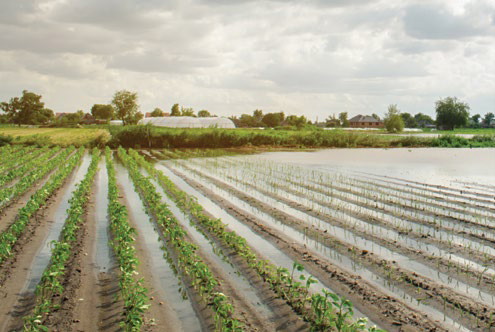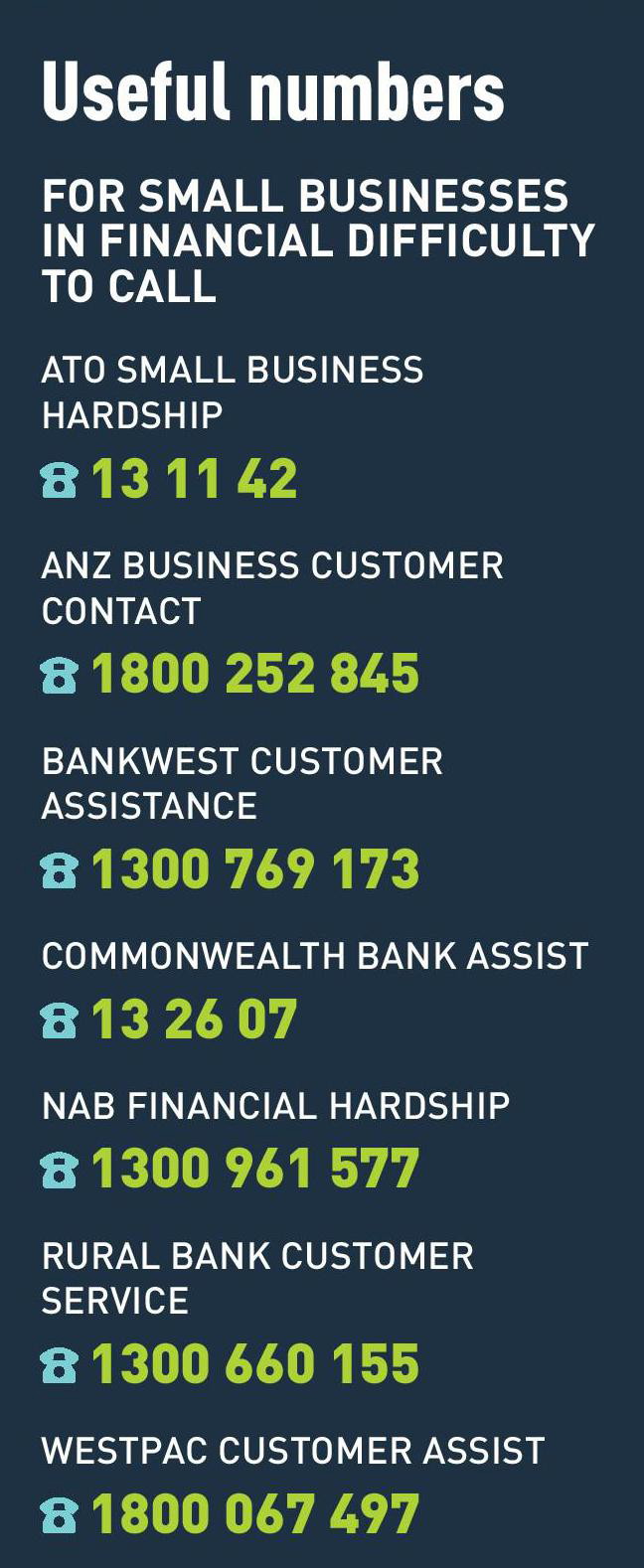What do you do...
when things get tough, and your business runs into trouble
BY CHRIS PUCKRIDGE RURAL AND SMALL BUSINESS FINANCIAL COUNSELLOR, RURAL WEST

Most farming businesses, at some stage in their history, will have a time so difficult that things look bleak and the future is clouded.
Often in farming, things can deteriorate quickly because of a natural event such as drought or crop failure.
Hard times can be caused by many other factors such as unforeseen expenses, personal upheaval due to disputes, divorce or death in the family.
Or events that reduce income or increase expenses to the point that the business is not able to meet its financial commitments.
Most farming businesses will experience some sort of financial crisis if not once, perhaps even more than once.
So, what can you do if you find your business in a position like this?
There are a couple of key elements that will help many businesses through a financial crisis and the common thread between them is communication.
If you find your business is in financial difficulty, there are several steps you can take to start digging your way out and get back on your feet.
Here are some proven suggestions that can help you:
1 Look around for a contact to discuss your situation and assist with a way forward.
Most people find that it is much easier to work with someone else, rather than to try and find all the answers by themselves. Who do you know who you can trust to maintain confidentiality and remain impartial and focused on supporting your business to recover?
This could be a trusted friend or neighbour who has business experience, or your accountant or farm advisor, or it could be an organisation like Rural West which incorporates the Rural Financial Counselling Service of WA.
It’s important to find someone to bounce ideas off, and there is the potential benefit of learning from someone that has experience in some of the matters that you are dealing with. When you are experiencing difficulty, it can be very isolating. Sharing this with someone you trust will make it much easier on you and decision making will be more effective with the shared knowledge of others’ experiences.
2 When you have found people you can trust to be working in your interests, you can then work together to review your situation. This will help you to put everything into perspective and separate emotions from facts. This can lead you to understand your ability to reduce debt or manage payment plans with creditors. It can also help you to review your overall position and look at the business strategically, and perhaps review if the business has a long-term future or whether it’s in the final stages of its financial life. You will then be able to update the status of your current financial position, including your assets, liabilities and cashflow, for the next one or two years. Once you have had a good look at the business and your overall financial position you can evaluate your capacity to recover and rebuild, or to sell or liquidate.

Hard times can be caused by natural events such as drought, cyclones and flooding.

MOST farming businesses will experience some sort of financial crisis if not once, perhaps even more than once.
3 If you plan to move forward with running the business, you are now ready to prepare an initial plan for rebuilding. You can start by contacting your creditors to let them know that you are in a difficult situation and that you have plans to make full payments on the debt you owe, but you may be asking for their support in providing you with increased times to pay or other forms of extended terms.
4 If you have bank debt, it will be important to contact your bank and discuss your situation. If you have a dedicated person in the bank that you can contact, this will be a good start. If you do not have a direct contact in the bank, all banks have a hardship section that you can speak with, and they can start the process of analysing your position. Hopefully the bank will provide you with assistance where needed, such as extending payment terms or changing your account structure, to give you short term assistance. An example of this would be moving from principal and interest on a loan to interest only, so that you can manage your cashflow better until you are able to recover.
5 If you have Australian Taxation Office (ATO) debt you will need to contact their hardship service. The ATO are very supportive of business owners and will do everything possible to support payment plans and extended arrangements.
6 Once you have your plans in place it is critical that you maintain ongoing contact with your creditors to keep them aware of your position. It is important to recognise that most creditors will be patient if you keep up the communication. Most creditors would rather get paid three or six, or even 12 months late than not paid at all.
6 Now that you have your immediate debts and critical issues under control it is important that you plan to ensure your business remains in a better financial position and doesn’t slip backwards. This can be done by regularly reviewing your cashflow budget and looking at building in a safety margin to cover any unforeseen expenses.
Regularly reviewing your recovery plan and communication with your creditors are your keys to recovery. Farming businesses can recover very well once plans are in place and communication is maintained.
Often difficult times like these build stronger bonds between the farming business and their suppliers and lenders, who learn that the business operator is reliable and trustworthy to repay debt, even when faced with difficult times.
The key points of managing unexpected business difficulties are finding people you can trust to work with and then ensuring communication with your creditors is open, honest, and consistent.

MORE INFORMATION
Rural West is supported by the State and Federal governments, Rural West works with a wide range of primary producers and regional small business owners to improve their position and profitability.
Call 1800 612 004 or visit ruralwest.com.au for more information.
